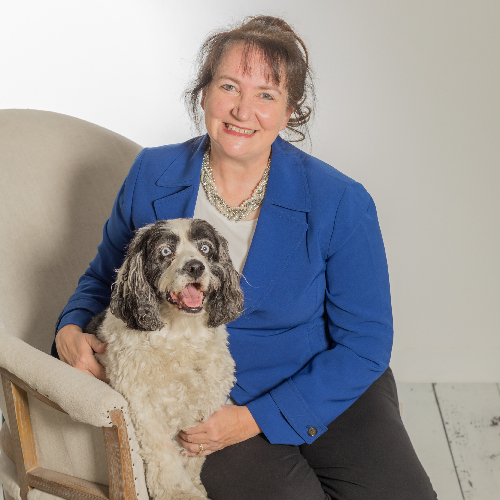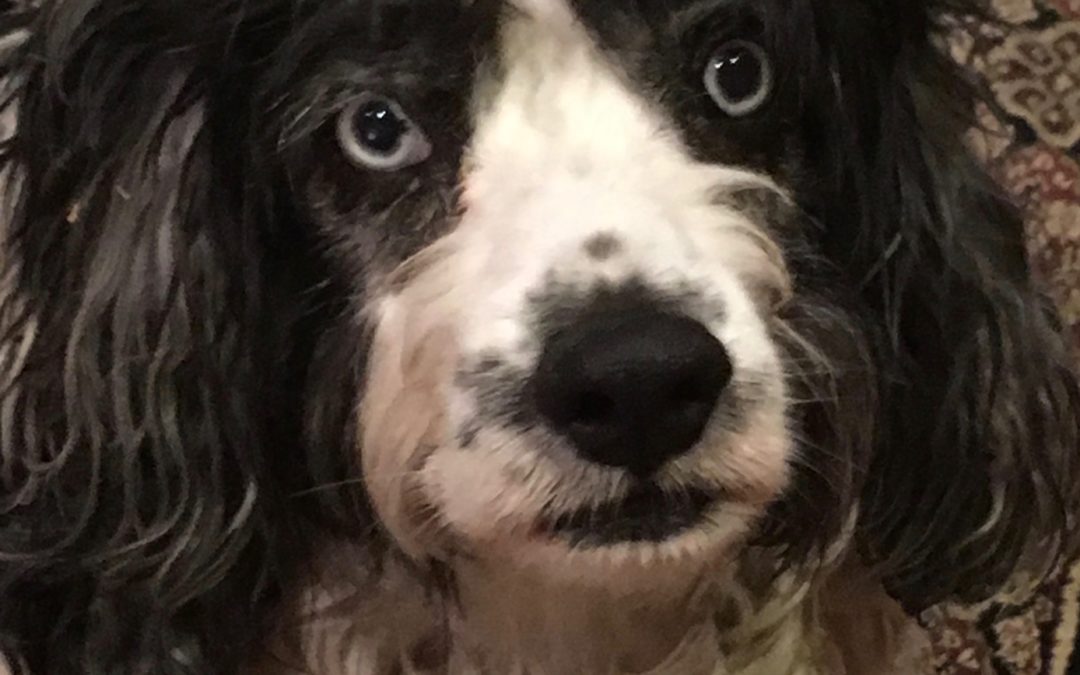Test Your Assumptions
Rewards
I adopted Murphy, our dog, from a shelter when he was five years old. I made a lot of assumptions about how to be a good dog owner, based on all the reading I’d done. Most of the time, I seemed to be on the right path. I did training sessions with him, and gave him a big treat when we’d finished. But once, while he was sitting patiently for his treat, I accidentally dropped his chew stick and it rolled around on the floor. “Oh, no,” I thought, “That’s not the way to reward his good behavior.”
Then Murphy jumped up, ran after it, pounced on it, picked it up in his mouth and shook it for all he was worth. He stood there with the stick in his teeth, ears up, tail wagging, just daring me to come after him. I went over and gave the stick a little tiny tug. He seemed to like that. I tugged some more. Then I let go, and he robustly gnawed on that stick with great joy.
“Huh,” I thought. “He liked that.” From then on, I would toss his chew stick in the air and let him chase after it, and then tug on it a bit with him. When I didn’t do that, he would put it aside and just lie down. If you’d asked me before I adopted a shelter dog if I should tease him with his treat like that, I would have said, “no.” But now that I had a dog, pretty clearly the answer, at least for this dog, was “yes.”
If I Like It, They Like It
Often our first instinct as a leader is to assume that others generally react like we do. In many situations, that’s an accurate assumption. People get engaged, married, have babies – those are happy things that call for congratulations. People experience a death in the family, a car accident, a house fire – those are sad things that call for condolences.
But most of life, especially in the workplace, consists of the more mundane things that don’t fall in those congratulations or condolences categories. To get the best out of our team, we need to know them as people. We need to figure out what works best for them.
Unlike Murphy, we can talk to our people and get a response back. But also unlike Murphy, people will be less than honest with you. Many say what they think the boss wants to hear. Some, based on experiences with other bosses, will want little to do with you. In one job that I had, one of the first things I did was make appointments with all the folks who reported to me (I had twelve at that time) and talk to them about what they liked about the job and what they didn’t.
Somewhat to my surprise, some of them evaded those appointments. Some acted suspicious. Others were almost downright rude, acting like I was wasting their time. But I knew my predecessor, and I knew that he had used the scorched earth approach to leading people. He had also been an enthusiastic proponent of mine, which had the unfortunate effect of making people think that we must be alike.
Ask the Question – What Do You Like?
Rather than reacting to their behavior, I observed it, I kept it in the back of my mind, and I got them talking. I asked about their backgrounds, what they liked about the current job, what they wanted to do next, and so on. I observed how they responded to my questions. I asked what they liked the most and how could I help them do more of it. I kept up those appointments, both individually and in smaller groups. It didn’t take a lot of time for them to realize that I was not my predecessor.
It’s easy to assume that what your people are doing now is what they must have always been doing. But when you ask questions, you discover all sorts of talents. One person had been an award-winning schoolteacher. One was a twelve-language linguist doing a diversity assignment in my department to broaden his skill set. Another had a degree in music and played the trumpet. It suddenly made sense why he was such a good trainer – he knew how to perform, with or without his trumpet.
Ask and Observe
It’s natural to make assumptions about your people, and those are not a bad place to start. But the trick is not to stick with those assumptions. Test them. Talk to your people, ask open questions, listen to the answers, and observe their energy. Where is it the highest? How can you tap into that, give them the opportunity to use it?
It wasn’t always possible to use all those talents. But I knew they existed, and I encouraged my employees to find ways to use them, on and off the job. They knew that I saw them as more than a cog in my machine. I saw them as talented individuals with much to give the workplace and workforce, and they responded accordingly. And everyone in the broader organization benefited.
Start Today
There are things I’ll never know about Murphy and those first five years of his life. He can’t tell me; our communication barrier can’t be breached. But with your team, it’s never too late to ask your employees about their previous job and education history, and build on their stories. You can do this. Start today.
How Can I Help?
Technical experts can become exceptional leaders – but many of them need and want a roadmap. The path forward isn’t as clear as it was for their technical specialty. If you or your organization needs help with your reluctant leaders, please get in touch.



